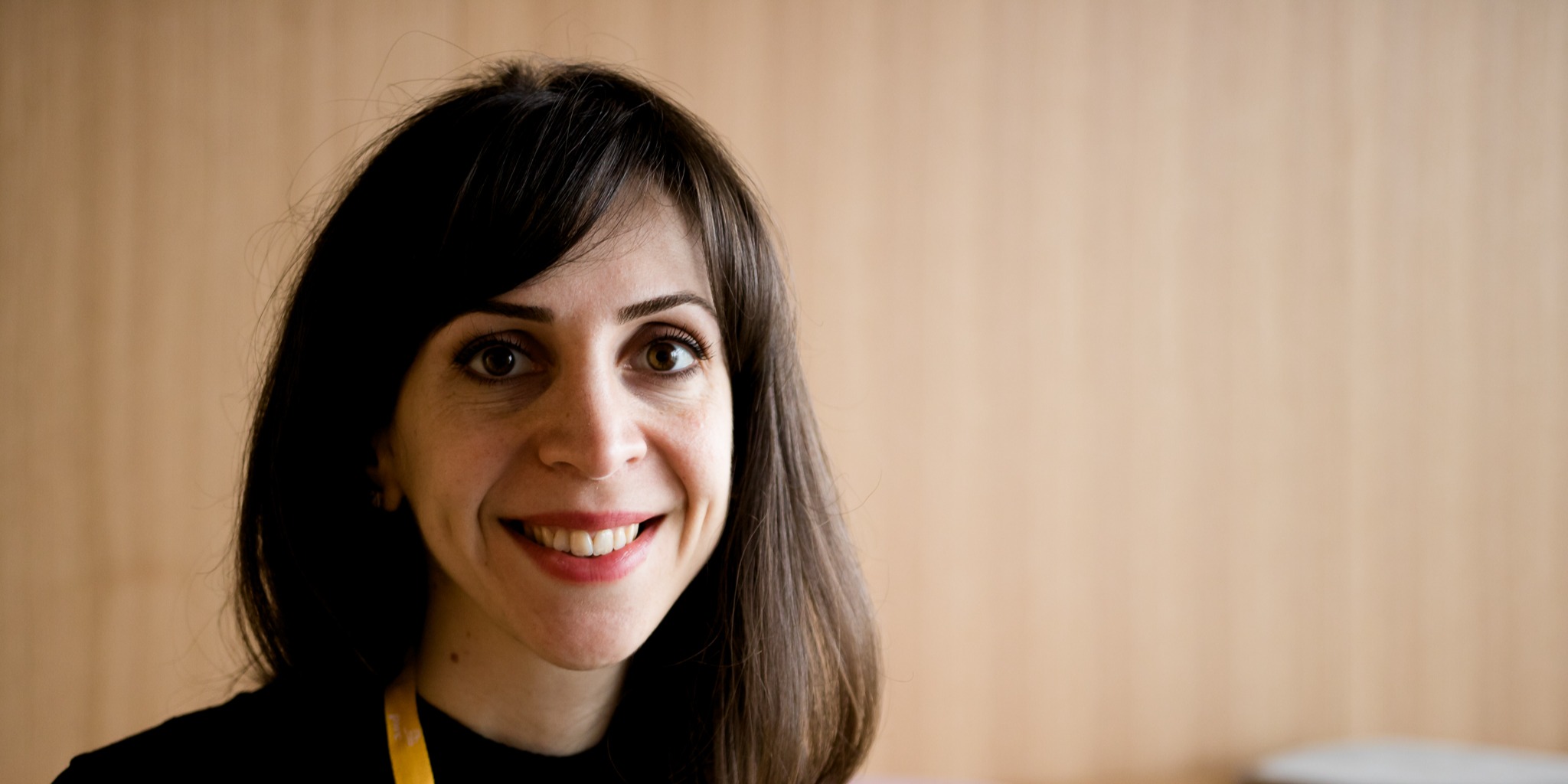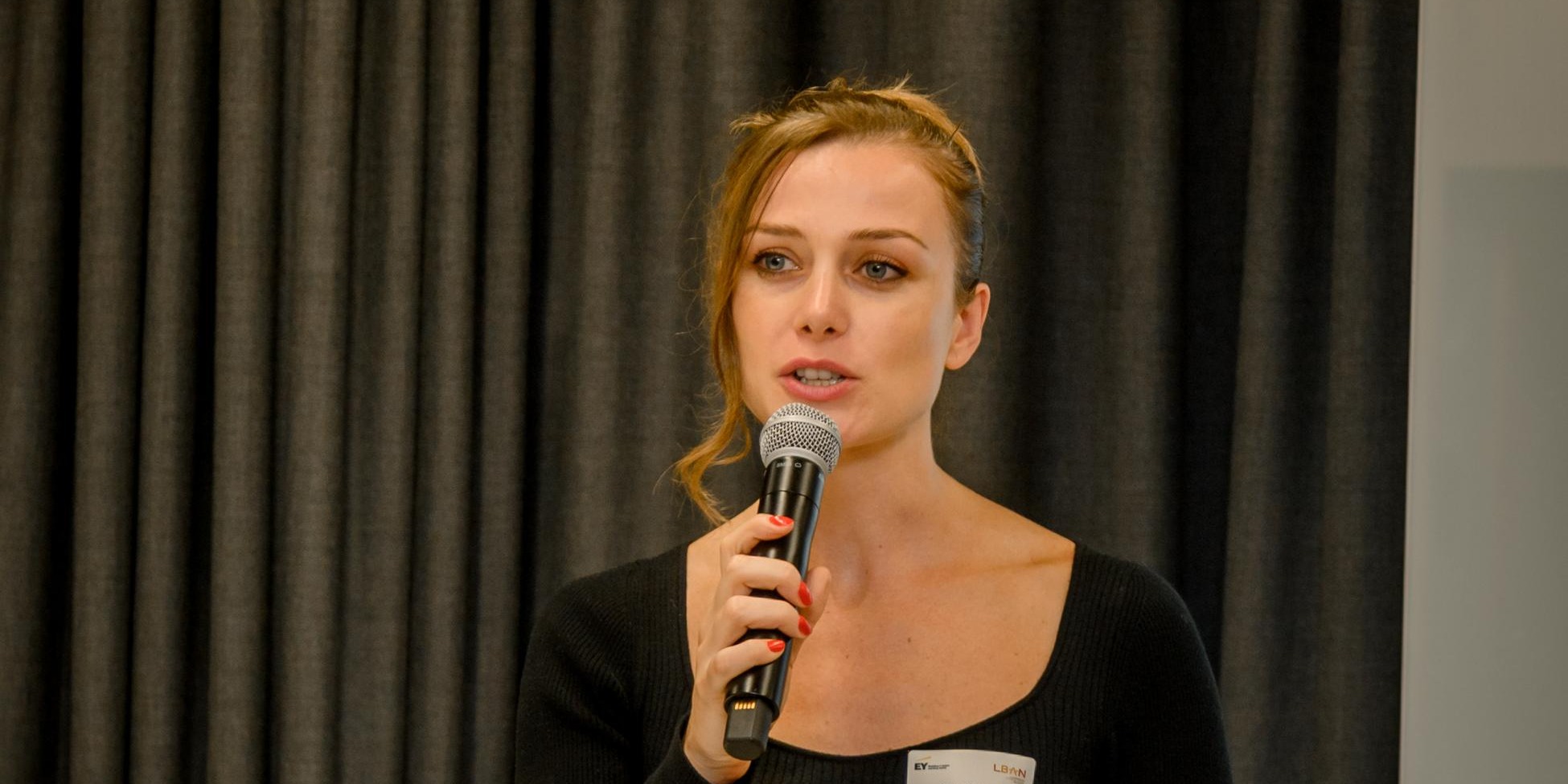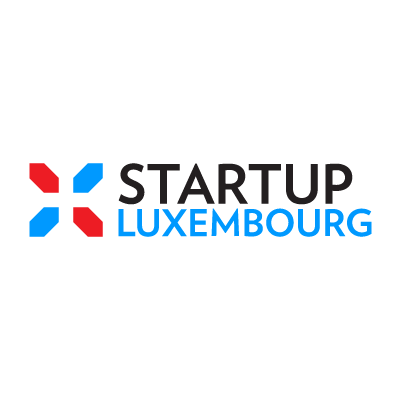Amélie Madinier has served as the Director of the innovation accelerator Le Village by CA Luxembourg since 2019. Established by the Crédit Agricole Group, the Village forms part of a broader European network dedicated to supporting entrepreneurs, startups, and large enterprises. She shares insights on her personal journey within the startup ecosystem and her perspectives on fostering greater female participation in the tech industry.
What sparked your interest in startups and the tech industry?
During my student years, I found myself drawn to math and science, which caught my interest more than arts or languages. This naturally led me towards finance, and after completing my masters in banking and finance, I started working as an analyst.
However, the role didn't really resonate with me, so I returned to Paris from New York where I was based. There, I reconnected with friends who were starting an innovation consulting firm. Excited about entrepreneurship, I joined them, launching my innovation journey in 2008.
Back then the focus was more on innovation rather than startups and tech. Our key audience were large corporates like banks and the telecom industry, and we were doing a lot of benchmarking for these markets. As young consultants, we had a forward-looking approach, envisioning business landscapes in the next decades.
Has the market’s reception to women and young professionals changed over the years?
Well, I’ve always felt quite confident and free due to my upbringing and education. My mother was resilient, my father open-minded, and I had three brothers. In my finance classes, however, there were around five girls among 35 students, so we were a minority.
Yet, I never felt like one, although barriers did exist. I always wondered why most of my friends pursued certain professions considered more “feminine” like marketing… Perhaps this was due to the influence of the media. Back then, being a marketing officer at companies like L'Oreal or Nestle seemed like the norm.
Setting high, realistic standards while acknowledging individual differences is key.
This is why I think it's vital to showcase diverse role models, and not just those who excel or are doing “very well”.
Is there a pivotal moment in your career that has motivated you to continue breaking barriers and empowering women in tech?
One of my best achievements is probably the setup of Le Village by CA. Starting from scratch, being supported by bankers, and going through the step-by-step process to achieve an ambitious project like this really boosted my confidence.
It is important that women, and any young person really, aspires to start their entrepreneurship journey in the real world early because it is one of the best ways to gain self-confidence,
I cannot explain why, but I’ve seen that most male leaders don’t question themselves as much as women do. This doesn’t mean they are better or smarter, it's just that they go for it. Sometimes we lack this confidence, and entrepreneurship or intrapreneurship is a great way to demonstrate that you can achieve ambitious projects by taking small steps and celebrating small wins.
How do your experiences contribute to the incubator's success?
Boosting resilience is an asset that we bring daily to our entrepreneurs. Our network not only prioritizes numbers but also supports individuals when things don't go as planned, as is often the case in entrepreneurship.
Finally my combined expertise in finance, marketing, and consulting is likewise very instrumental.
How does Le Village by CA promote inclusivity?
It's very basic, but we support inclusivity by remaining open, committed, and receptive to all the projects presented to us, by agreeing to meet all the entrepreneurs who approach us, and by treating each project owner with the respect they deserve, whatever the sector addressed or the degree of maturity of the project.
Regarding Le Village’s employees, we are very lucky to be surrounded by junior profiles who bring new perspectives and encourage diversity of ideas and points of view within the company.
Despite the efforts made, it's not always easy to come across projects run by minorities. There is still a lot of work to be done to encourage women and minorities in general to be enterprising and to take risks.
Many incubators and accelerators are taking these realities into account, and there are networks in place to assist women.
However, beyond inclusion, the Village is evolving to have a greater impact on the environment and society. Our goal for 2023 and 2024 is to ensure that half of our projects are focused on impact.
It is also worth noting that Luxembourg has made progress in terms of inclusivity. A commendable initiative undertaken by Prime Minister Xavier Bettel was to encourage the return of women to the workforce by allowing males to take parental leave as well. That was undoubtedly not an easy decision to make, but it was certainly an efficient one.
Do you have any other advice for women considering a career in tech?
It's important to follow your passion and to get connected with ongoing initiatives. There are several women associations in Luxembourg focusing on female leadership and building women-led startups.
The Women in Tech Initiative by Digital Luxembourg and Women in Digital Empowerment (WIDE) is one example. I think being surrounded by other inspiring women should be considered because joining these communities is like a breath of fresh air and a strong source of support.
For businesses, I believe there is still work to be done in fostering workplace flexibility because women continue to spend more time caring for the home and children than men.
I believe the voices of women can sometimes be louder with male supporters backing them.
According to a McKinsey survey, around 10% of women quit their tech jobs as a result, while just about 0.5% of men do. Offering more flexibility will undoubtedly aid in attracting talent and women to enterprises.
Mentorships and sponsorships by men is also critical here because, it's unfortunate but I believe the voices of women can sometimes be louder with male supporters backing them. The participation of more experienced male leaders in tech, and not just for marketing purposes, can offer very positive results.
What would you like to see in the coming years in Luxembourg’s tech space?
I'd like to see the emergence of a more diverse tech community, represented by young people, but also by older people, by more women, by ex-employees from more traditional professions... AND by people who care about our environment.
Now that the transition has been made, I would love to see in the coming years a global consciousness about the impact of these technologies on our environment and our societies. From that point of view, there is still a great deal of work to be done. I would even go so far as to say that we are starting from scratch.
I'd like to draw the attention of our entreprises to this issue. They have a key role to play in initiating a more responsible approach to how we make use of these technologies.
Our governments certainly also have a role to play in limiting the negative impact of the misuse or overuse of screens by young people and its impact on their mental health and the quality and effectiveness of their learning. After going 100% digital during the last 15 years, Sweden, for example, will see the return of school textbooks at the start of the 2023 academic year.
Stay tuned!
Sign up now and receive the latest news about our ecosystem into your inbox.
You May Also Like
These Related Stories

Empowering the next generation: the importance of building a strong tech foundation

“Women tend to be very risk-averse, and the venture capital sector is very risky and bold”






